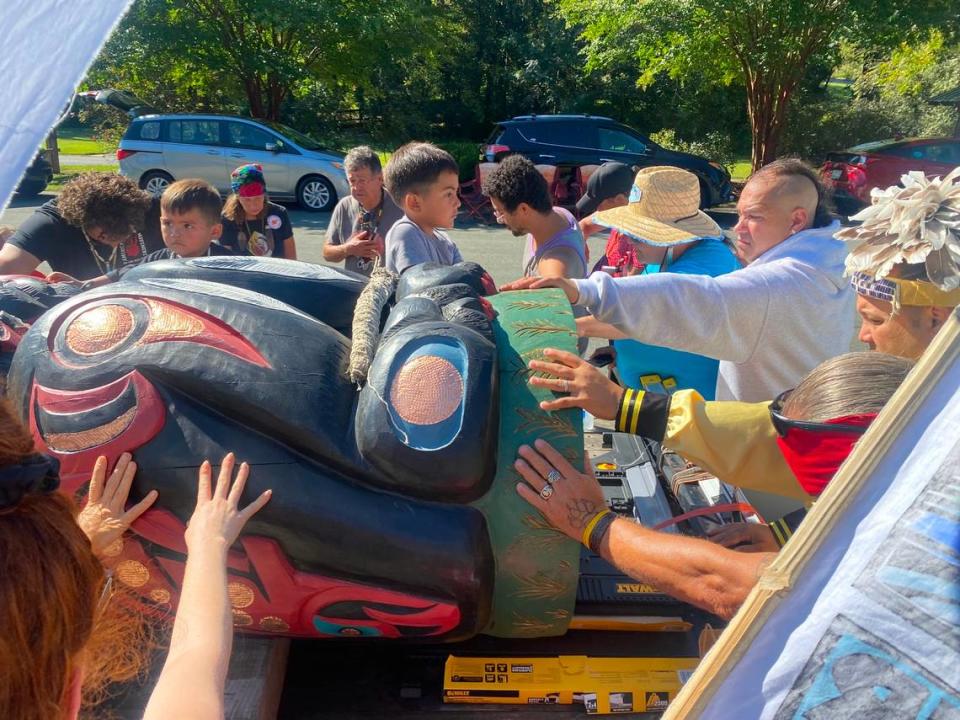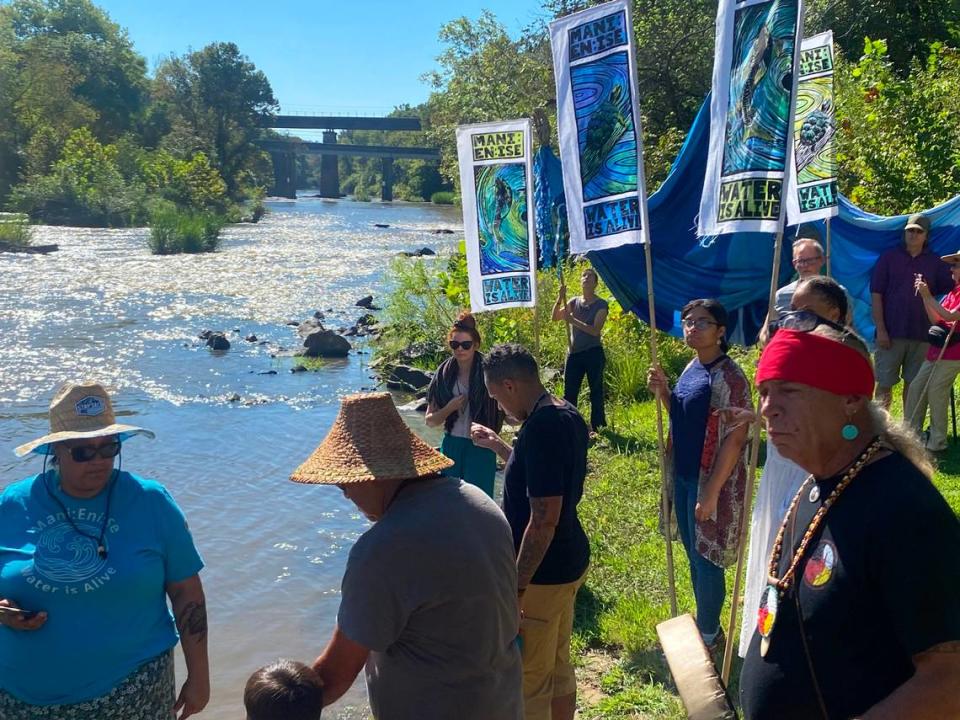Along NC’s Haw River, Native Americans hold a totem pole prayer for ‘sacred’ water
The totem pole stood more than 10 feet tall and weighed more than two tons, and as it rolled into Haw River on the back of a flatbed Monday, a crowd of 30 placed their hands on its painted wood, praying for the “sacred” waterway it came to protect.
For more than two hours, Native American and environmental activists joined on the Haw’s banks in Alamance County, singing and drumming to celebrate the river they call seriously threatened by the proposed Mountain Valley Pipeline.
“We are praying for the welfare of this body of water,” said Crystal Cavalier, Indigenous advocate who is a citizen of the Occaneechi band of the Saponi Nation. “We are praying that the pipeline doesn’t come through. We are here to pray for everyone who doesn’t know there is harm coming to them.”

The MVP natural gas extension would run more than 70 miles south of Virginia into Alamance County, and both Native and environmental groups have long feared the impact on waterways it would cross.
A longer 303-mile route through Virginia has been mired in legal challenges and its fate remains uncertain, though the U.S. Supreme Court recently reversed a lower court ruling that placed a stay on construction while it considers litigation from the Wilderness Society.
‘Water wants to be appreciated’
Cavalier’s group 7 Directions of Service has long opposed the MVP extension, pointing to the potential for damaged water quality and species loss in exchange for unnecessary natural gas supply and minimal job gains. Monday’s interfaith totem pole prayer aimed to highlight those concerns in Haw River and connect them to the history of pipelines crossing native land.
“We’re connected to this water,” said Jewell James, a master carver from the Lummi Nation in Washington. “Without it, we will die. It’s guaranteed. Water wants to be appreciated. It is our duty to appreciate the water of the Earth.”
Cavalier joined the Lummi on a totem pole journey two years ago.
This one made a special trip into North Carolina on its way to Washington, D.C., where the goal is to win freedom for Native activist Leonard Peltier. Indigenous rights groups are seeking clemency for Peltier, who has been imprisoned 48 years for aiding and abetting the death of two FBI agents during a shootout at South Dakota’s Pine Ridge Reservation in 1975 — a crime he has always denied.

As he led the Four Directions blessing, celebrating humans’ ties to all things in nature, carver Doug James stood before a collection of banners showing Peltier’s face and reading “Stop MVP.”
“When you walk through these woods, every part of it teaches you,” he said. “It’s taken some negativeness off of you. It’s an honor to come and mix our tracks with the ancestors of this land. These pole journeys are special. It’s what the creator is doing. It brings us back together.”
Along the Haw’s banks, the Cone Fabrics smokestack rose from a mill converted into luxury apartments. The activists stood there in prayer, some wading in ankle-deep. Each took a small pinch of tobacco, and James instructed them to assign a prayer to each leaf as they scattered them over the water.
“We’re fortunate to know that we’re 78% water, like Mother Earth,” he said. “The water sees you. The water feels you.”


